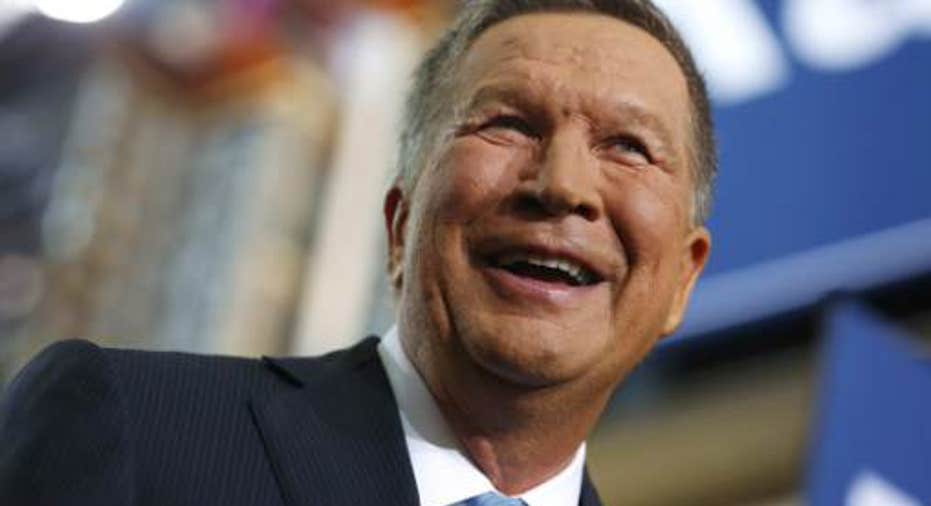Opinion: Can John Kasich Fix Washington?

When you’ve worked with as many top executives as I have, you can’t help but notice certain behavioral attributes that separate the extraordinary ones from the pack. Some qualities are probably fundamental to all great leaders, while others are surprisingly difficult to characterize.
Take Ohio Governor John Kasich, for example. I wasn’t the least bit surprised to see him enter the crowded field of GOP hopefuls for the 2016 presidential nomination. Fund-raising ability aside (not exactly my thing), as I see it, he’s got an interesting balance of foundational and intangible qualities that make a great leader … of a company or a nation.
While he comes across as a regular guy with a sort of endearing folksy quality, when it comes to his position on key issues, he never wavers. He’s always clear on what he stands for and why it makes sense to him. He’s not an idealist, mind you, but a clear thinking pragmatist focused on his priorities. And while he’s known for setting aggressive fiscal goals, he has an extraordinary track record of achieving them.
As chairman of the House Budget Committee during the late 90s, he championed the Balanced Budget Act of 1997 and, during his tenure, the federal budget shifted from a deficit of $163 billion to a rare surplus of $236 billion. Likewise, as governor of Ohio, his priorities were to balance the budget, create jobs and slash unemployment without raising taxes. And that’s exactly what he did.
What I think few people understand about remarkably successful executives is how important it is for them to remain focused on critical priorities and not get distracted by all the noise.
During his first gubernatorial term, Kasich was criticized for a lack of cultural sensitivity in creating an almost exclusively white male cabinet. His response was definitely one of a man on a mission with no patience for political correctness or any other nonsense that might distract him from his key priorities.
“I want the best team I can get,” Kasich told the Cleveland Plain Dealer, "I don't look at things from the standpoint of any of these sort of metrics that people tend to focus on, race or age, or any of those things.”
The most effective CEOs on earth – folks like Bill Gates, Warren Buffett and Steve Jobs – have never been influenced by special interests. They know who their stakeholders are. They know what their goals are. They know they’re paid to do a job – to serve their constituents and make good on their promises. And they work tirelessly to get the job done.
Just as corporations need chief executives that shareholders, employees and customers trust will always put their needs first, the nation needs a leader who stands by his word and won’t let pride, politics or lobbyists, for that matter, get in the way of doing what’s right for the people.
That quality has been sorely missing from beltway politics. And it’s that lack of leadership, honesty and integrity that’s behind Washington’s dysfunctional divisiveness and systemic partisan gridlock.
Another aspect that sets great leaders apart is that they take their work seriously, but not themselves. Don’t get me wrong. Of course an oversized ego comes with the territory. But as they mature and survive the test of time, even the most narcissistic executives will develop a sort of grounded self-awareness, maybe even a sense of humor and humility.
Who can forget Buffett’s famous quip, “I buy expensive suits. They just look cheap on me.”
Likewise, I think it’s easy to mistake Kasich’s characteristic intensity and discipline as excessive and obsessive. In reality, he’s more balanced than that. He’s also quite disarming and engaging. A genuine lightheartedness shines through from time to time, showing he’s not really as self-centered as most of his peers. I don’t know Kasich but I did know Jack Kemp. He had that same sort of quality.
When it comes to running a large company or a nation, perhaps a sense of balance is the most important behavioral attribute. After all, leaders need a vision for the future that’s grounded in bedrock values. They need to be intensely focused on their priorities but flexible enough to adapt to a chaotic world. And they need charisma when it counts, not an over-the-top god-like presence of a rock star.
I’ve known dozens of CEOs in my time, but just a few with that rare sense of balance. I would be happy to work with them again, anytime, anywhere. Had he been a CEO, I think John Kasich could have made the short list. If he can bring to Washington the leadership qualities he brought to Ohio, he might even make a great president.



















